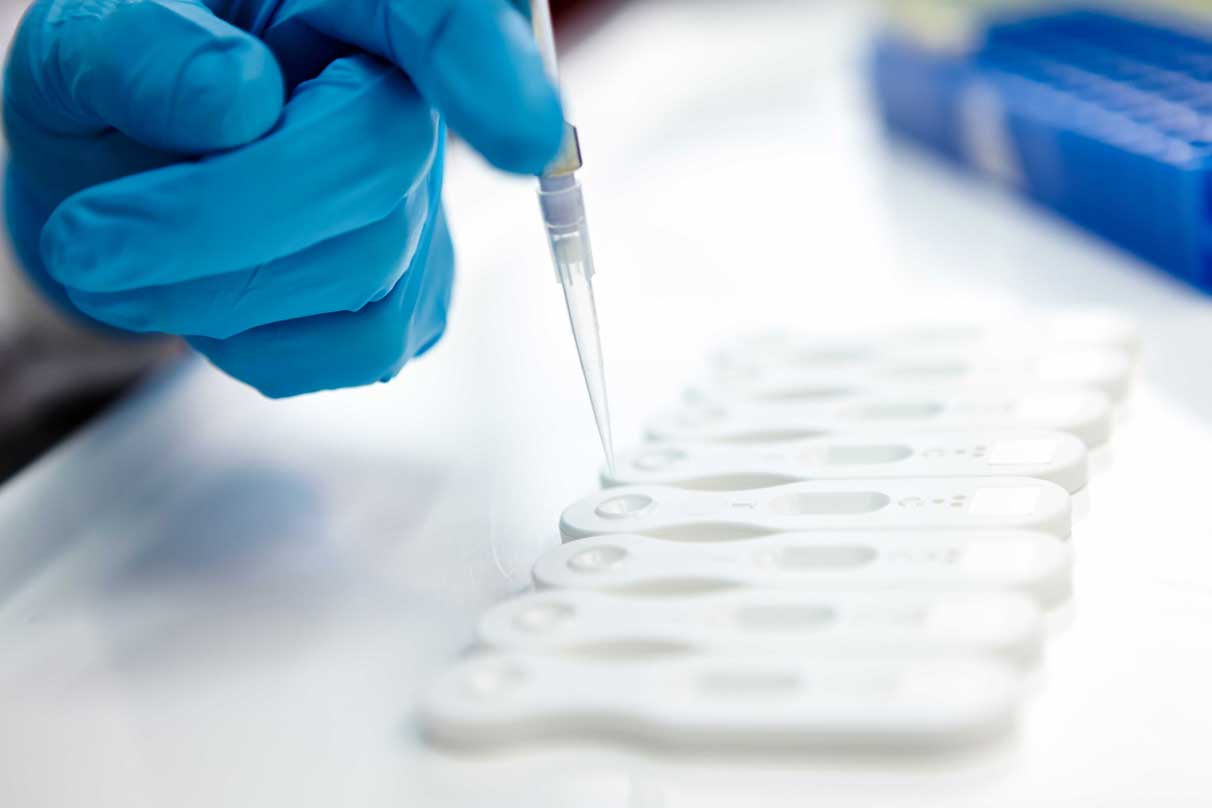BBI Launches Innovative Conjugate Blocking Technology

Complete the form below to unlock access to ALL audio articles.

The technology, developed in-house by BBI Solutions scientists, improves the limit of detection of an assay, providing an increase in sensitivity of up to ten times and a faster time to result.
Lateral flow immunoassays (LFIs) rely on the specific interaction between the analyte of interest and an immobilised binding partner, such as an antibody, antigen or enzyme. To improve performance, a ‘blocking’ agent is bound to unoccupied conjugation sites on the reporter label, preventing non-specific binding. However, the most commonly used conjugate blocker, BSA cross-reacts with human serum albumin-binding antibodies, bovine and other animal-origin targets, and exhibits lot-to-lot variability. Its relatively large size can also lead to steric hindrance affecting the detection of the target molecule. The proprietary Morffi technology overcomes these issues. Due to its size in comparison to BSA, it improves the availability of analyte-specific binding partners on the surface of the reporter label, increasing the signal intensity and sensitivity of the assay. Morffi has been successfully tested with over 30 conjugates to date, clearly demonstrating its suitability for a range of LFIs. Find out more in the BBI Solutions whitepaper entitled Morffi, Enhanced performance of a lateral flow assay.

